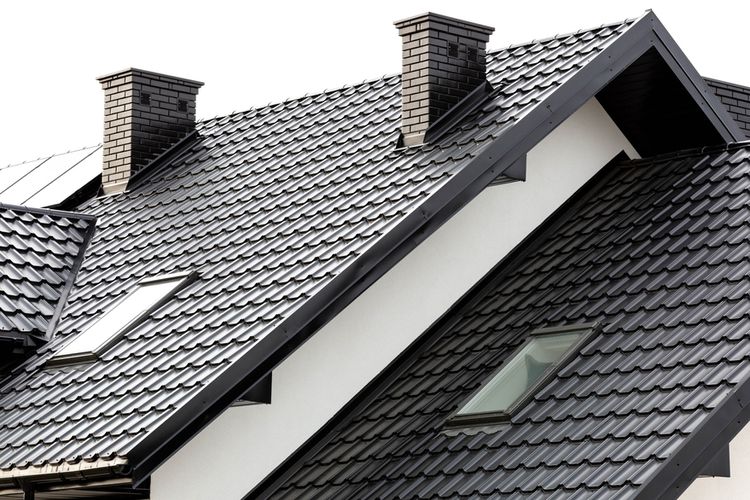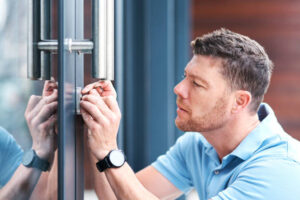
roof replacement
When your roof starts leaking or showing signs of age, it’s natural to feel unsure about your next step. Should you go for a quick fix, or is it time to consider a full replacement? Choosing between roof replacement and roof repair is not always easy. Making the right choice can save you money, protect your home, and extend the life of your roof.
In this blog, we’ll help you understand the difference between these two options. You’ll learn how to spot warning signs, when repairs make sense, and when replacing the entire roof is the smarter long-term decision. Let’s explore what’s best for your home and your budget.
Understanding the Basics: Roof Repair vs. Roof Replacement
Roof repair means fixing specific problems—like missing shingles, small leaks, or minor damage from wind or debris. It’s usually quicker and more affordable.
Roof replacement means removing the entire existing roof and installing a brand-new one. It’s a bigger project, but it gives you a fresh start and peace of mind for years to come.
Both options serve different purposes. Choosing between them depends on your roof’s age, the level of damage, and your long-term goals.
Signs You May Only Need a Roof Repair
In many cases, you can avoid a full replacement with just a simple repair. Here are a few signs that suggest a repair might be enough:
-
A few missing or cracked shingles
-
A small leak in one area of your ceiling
-
Minor damage after a storm
-
The rest of the roof is still in good condition
-
Your roof is relatively new (less than 10–15 years old)
If these apply to your roof, a skilled contractor can patch things up quickly and prevent further damage. Roof repairs are less expensive and take less time, which makes them ideal for smaller issues.
When a Roof Replacement Makes More Sense
There are times when repairing your roof won’t be enough. In fact, patching up an old or badly damaged roof might cost you more in the long run. Here’s when it’s smarter to choose a full replacement:
-
Your roof is 20 years old or more
-
You see widespread damage or multiple leaks
-
Repairs keep failing or don’t last long
-
Shingles are curling, buckling, or missing in many areas
-
You plan to stay in the home long-term
Replacing your roof gives your home new protection and improved energy efficiency. It also boosts your home’s value and enhances curb appeal—especially important if you plan to sell.
Comparing Costs: Short-Term Fix vs. Long-Term Investment
Roof repair is generally more affordable in the short term. The cost depends on the size of the damaged area and how difficult the repair is. It’s a great option when your roof is mostly in good shape but needs some attention.
Roof replacement is a bigger investment upfront, but it can save you money down the road. You avoid repeated repairs and gain a longer-lasting roof. Plus, many new roofing materials offer energy-saving benefits that reduce your utility bills.
Think of roof replacement as a long-term solution that pays off over time, while roof repair is more of a temporary fix when the overall condition is still solid.
How to Decide What’s Right for Your Home
To make the best decision between roof replacement and roof repair, ask yourself these key questions:
-
How old is my roof? Age is a major factor.
-
How bad is the damage? A small leak is easier to fix than widespread water damage.
-
Have I already repaired the roof recently? If yes, replacement may now be more cost-effective.
-
Am I planning to move soon? A new roof can increase your home’s resale value.
The best way to decide is by scheduling a professional roof inspection. A licensed contractor can tell you exactly what condition your roof is in and help you choose the most practical option.
Benefits of Making the Right Choice
Whether you go with a repair or a full replacement, choosing the right option at the right time can offer big benefits:
-
Protects your home from water damage
-
Improves energy efficiency and lowers heating/cooling costs
-
Makes your home look newer and well-maintained
-
Gives peace of mind during storms or bad weather
-
Adds value to your property when selling
Remember, your roof is your home’s first defense. Taking care of it now means fewer surprises later.
FAQs About Roof Replacement and Roof Repair
Q1: How long does a roof repair usually last?
A small repair can last anywhere from a few years to over a decade, depending on the roof’s age and the quality of the work.
Q2: How often should a roof be replaced?
Most asphalt shingle roofs last 20–25 years. Other materials, like metal or tile, can last longer.
Q3: Can I repair my roof myself?
Small repairs might be manageable, but it’s safer to let a professional handle roofing work—especially when climbing or identifying hidden damage.
Q4: Is roof replacement covered by insurance?
It depends on the cause. Storm damage is often covered, while wear and tear usually isn’t. Always check with your insurance provider.
Q5: Will a new roof increase my home’s value?
Yes, a new roof can significantly boost resale value and curb appeal, especially in competitive real estate markets.
Final Thoughts
Deciding between roof replacement and roof repair doesn’t have to be overwhelming. The key is understanding your roof’s condition, the extent of damage, and your future plans for the home. A repair is often enough for minor issues, while replacement is the better choice for old or heavily damaged roofs.
If you’re unsure what your home needs, the best step is to schedule a roof inspection. A trusted roofing contractor can guide you toward the most cost-effective and long-lasting solution.


